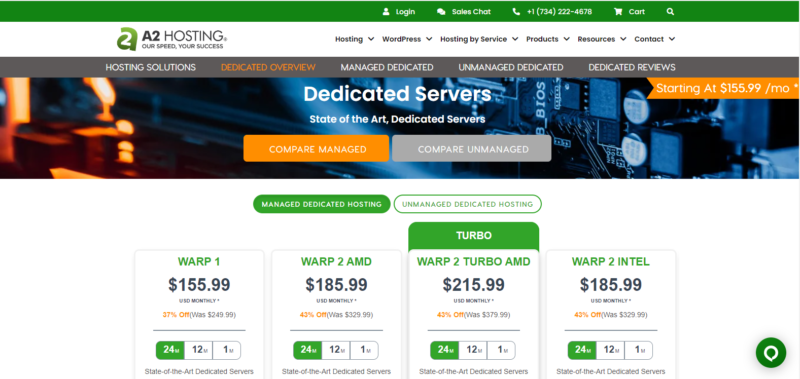Introduction
Web hosting is an essential component of creating and maintaining a website. It is the service that makes it possible for the website to be accessible on the Internet.
There are several different web hosting providers available, including shared hosting, VPS (Virtual Private Server) hosting, and dedicated hosting.
Each type of hosting offers different levels of resources and control, and it is important to choose the right one for your website needs.
Importance of Choosing the Right Web Hosting Providers
The type of hosting you choose for your website can greatly impact its performance, security, and scalability. If you choose a hosting option that does not meet your website's needs, it can lead to slow load times, poor user experience, and even security vulnerabilities.
On the other hand, choosing the right hosting option can help ensure that your website runs smoothly, is secure, and can handle increased traffic.
Shared Hosting Providers
Shared hosting is a type of web hosting where multiple websites share the same server resources, such as processing power, memory, and storage. This makes it the most affordable type of hosting, as the cost of the server is shared among multiple users.
When shared hosting is a good choice
- Personal blogs or portfolios
- Small businesses with low-traffic websites
- Websites with low resource requirements
- Websites that are not expected to experience rapid growth in traffic
- Websites that do not require specific software or configurations.
Best shared hosting providers
VPS Hosting Providers
VPS (Virtual Private Server) hosting is a type of web hosting that allows a single server to be partitioned into multiple virtual servers. Each virtual server has its own set of resources, such as processing power, memory, and storage, and acts as a dedicated server. This allows for more control and flexibility than shared hosting, as the user has their own set of resources that are not shared with others.
When VPS hosting is a good choice
- Websites that need more control and flexibility than shared hosting can offer.
- Websites that are experiencing growth in traffic and need more resources than shared hosting can provide.
- Websites that require specific software or configurations that are not available with shared hosting.
- Websites that need more security than shared hosting can provide.
- Websites that need to handle more demanding applications.
Best VPS hosting providers
Dedicated Hosting Providers
Dedicated hosting is a type of web hosting where a single user rents an entire physical server, including all of its resources, such as processing power, memory, and storage. This allows for the highest level of control and flexibility, as well as the best performance and security compared to shared and VPS hosting.
When dedicated hosting is a good choice
- High-traffic websites
- Websites that need the highest level of control and flexibility
- Websites that require the best performance and security
- Websites that handle sensitive data or transactions
- Websites that need to handle the most demanding applications.
- Large-scale online business.
Best dedicated hosting providers
Factors to Consider When Choosing a Hosting Option
When choosing a hosting option for your website, there are several factors that you should consider in order to ensure that you choose the best option for your needs. These include:
- Traffic and scalability: If you expect your website to receive a lot of traffic, you will need a hosting option that can handle the increased load, such as VPS or dedicated hosting. On the other hand, if your website is not expected to receive a lot of traffic, a shared hosting option may be sufficient.
- Resources and control: If you need specific software or configurations, or if you need a higher level of control over the server, you may need to choose a VPS or dedicated hosting option. Shared hosting is usually more limited in terms of resources and control.
- Security: Security is another important factor to consider when choosing a hosting option. Shared hosting can be less secure than VPS or dedicated hosting, as the resources are shared with other websites, which can put your website at risk.
- Cost and budget: The cost and budget is another crucial factor to consider. While shared hosting is usually the most cost-effective option, it may not always be the best option for your needs.
- Managed vs Unmanaged hosting: Managed hosting is a type of web hosting where the provider manages and maintains the server and its software for the client. Unmanaged hosting is when the client is responsible for managing and maintaining the server and its software.
By considering these factors, you can make an informed decision about which hosting option is best for your website needs.
Comparison of Shared, VPS, and Dedicated Hosting in Terms of Cost, Scalability, and Performance
Cost
Shared hosting is generally the most cost-effective option, as it is the cheapest of the three options. VPS hosting is usually more expensive than shared hosting, but less expensive than dedicated hosting. Dedicated hosting is the most expensive option, as the client has their own server and resources.
Scalability
Shared hosting is the least scalable option, as resources are shared among multiple websites. VPS hosting is more scalable than shared hosting, as it provides more resources and control. Dedicated hosting is the most scalable option, as the client has their own server and resources.
Performance
Shared hosting is less performant than VPS or dedicated hosting, as the resources are shared among multiple websites. VPS hosting generally has better performance than shared hosting, as the client has more resources and control. Dedicated hosting is the most performant option, as the client has their own server and resources.
In conclusion, shared hosting is the best option for small websites with low traffic and low resource requirements, while VPS and dedicated hosting are better options for bigger websites with high traffic and high resource requirements.
Recommendations for Different Types of Websites
- Small personal or hobby websites
For small personal or hobby websites, a shared hosting option is usually sufficient. This option is cost-effective, easy to set up and manage, and provides enough resources for small websites with low traffic.
- Small business websites
For small business websites, a shared hosting or VPS hosting option may be appropriate. This will depend on the traffic, resource requirements, and budget of the website. VPS hosting will provide more resources and control than shared hosting, but it is also more expensive.
- E-commerce websites
E-commerce websites typically require more resources and security than other types of websites, so a VPS or dedicated hosting option may be more appropriate. This will depend on the traffic, resource requirements, and budget of the website. To get an e-commerce website you can consult our team for the e-Commerce web development services
- High-traffic websites
High-traffic websites require a lot of resources and scalability to handle the increased traffic. A VPS or dedicated hosting option is usually the best choice for high-traffic websites.
- Complex websites
Complex websites that require specific software, configurations, or a higher level of control may require a VPS or dedicated hosting option. This will depend on the specific requirements of the website.
By considering the type of website and its specific requirements, you can choose the most appropriate hosting option for your needs.
Conclusion
In this article, we have discussed the different web hosting providers: shared hosting, VPS hosting, and dedicated hosting. We have outlined the key differences between these options in terms of cost, scalability, and performance. We have also provided recommendations for different types of websites and discussed the factors to consider when choosing a hosting option.
Choosing the right hosting option for your website can have a significant impact on its performance, security, and overall success. By considering your budget, traffic, resource requirements, and the type of website you have, you can make an informed decision about which hosting option is right for you.
Remember, it's also important to research different providers and compare the features they offer to ensure you're getting the best value for your money.







